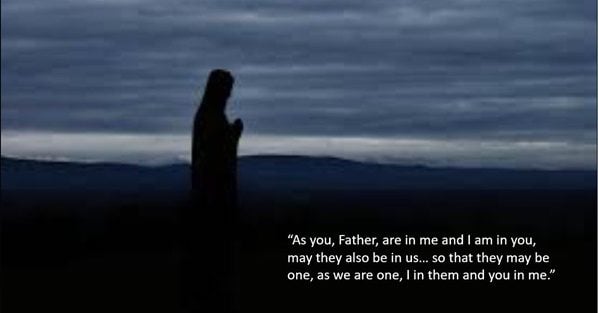Why are you working so hard to disprove God?
From I Origins movie Trailer
A reader named Heidi recently asked that we talk about “the issue of pride” as it relates to “our desires for non-physical things”. It was a great suggestion because pride is a sinful pattern of desire for non-physical things, a pattern we believe that Jesus’ atonement is undoing. The understanding of atonement as undergoing a change in our pattern of desire is the focus of our work at Teaching Nonviolent Atonement on Patheos.com. The term “pattern of desire” may sound strange to our ears, but it is an essential concept if we want to understand the saving power of the Cross in nonviolent terms. But let’s put faith aside for a moment and begin with the definition of pride used in psychology:
A conscious emotion characterized by the attainment of a goal and that accomplishment resulting in recognition and approval from others in the group. Pride differs from similar emotions like joy and happiness as these can be experienced without anyone else’s approval.
In other words, pridedoes not arise independently from a source deep within us. Feeling pride in ourselves is dependent on receiving approval from others. That approval can take many shapes such as praise, prizes, applause and promotions, even approving glances. This is because self-love is learned just the way all desires are learned, by imitating the desires of others. Their pattern of desire for us is reproduced in us over time and so we learn that we are lovable.
So why do I call pride a sinful pattern of desire? After all, pride has come close to being a virtue in our culture. We take pride in everything we can from our accomplishments, social status and bank accounts to our ethnic, national, religious (or not) and gender identities. Getting approval from others feels good and has enormous psychological, emotional, and financial benefits. Why would we give it up?
Being Made In Whose Image?
Of course, learning to love ourselves is a good thing. It is essential to our sense of well-being and to our ability to love others. But what happens when we need the approval of others too much? We may begin to mold ourselves into their image of what is lovable. To gain their approval, we seek to become the type of person they will approve of. The risk is that we will allow ourselves to be made in their image. Pagan Patheos blogger P. Sufenas Virius Lupus offers a good demonstration of how this works in this warning to his LGBTQ community about the dangers of Pride celebrations:
The fact is, many LGBTQ Pride celebrations these days aren’t so much about the liberating reclamation of an identity that has been maligned, but which is an inborn fact about many people’s existence, nor is it a celebration of the anniversary of events on New York’s Christopher Street in late June of 1969. Instead, they’re about commercialism, mainstreaming of certain preferred physical types and behaviors, and promoting an image of gay and lesbian (bisexual and transgendered still get the short end of the stick after all these years, if they get any share of the stick at all) lives that is primarily urban, middle and upper-middle class, white, and—a few speedo-clad contingents or leather-wearing Dykes on Bikes aside—rather assimilationist and moderate liberal in social and political orientation. Much of it may be gay, but not as much as one might hope is actually queer.
Lupus astutely notes how easily Pride Parades can become a counterproductive march toward the loss of queerness. Rather than creating space for their own flourishing, by emphasizing Pride the LGBTQ community risks being made in the image of others, of becoming something they are not, maybe even something less than they could be. Theologian James Alison explains how this trap works for any of us, gay, lesbian, bisexual, transgendered, or straight:
[T]he trouble about seeking the approval of the social other is that you will get it! You will act in such a way as to get that approval, and then become its puppet. And because of that you will be selling yourself short. You won’t be wanting enough, you will have too little desire. Your ‘self’ will be a shadow of what you could be if you allowed the Creator to call you into being. (Jesus the Forgiving Victim, 409)
We all need and desire to be loved. To do that, we need to connect with a pattern of desire that wants what’s good for us and celebrates our uniqueness. As René Girard tells us, becoming truly “free to be me”, as the saying goes, always involves choice: “true freedom lies in the basic choice between a human or a divine model.” (Deceit, Desire and the Novel, 58)
Faith and A Culture Sick With Pride
The modern problem, however, is that we don’t agree with Girard. We don’t see our choice as being between God and others – we think it’s between God and Self. When the prophets of modernity declared that God was dead it was the ultimate expression of pride. By expelling God, they led unsuspecting humanity into an idolatry of the Self. The worship of God was replaced by the worship of individual self-sufficiency. Yes, it’s true that the elevation of the Self brought many good things, especially to victims of discrimination and persecution. The LGBTQ movement is but one example of that. But when we expel God, the truth we deny is that we are left with each other as models for desire. Lupus, from his pagan perspective sees the risks of this, though I do not know what solution he expects to find. So what hope does a Christian perspective offer?
First, we must learn to recognize faith in our own self-sufficiency for the self-defeating illusion that it is. In a recent book from Michigan State University Press, Girard engages in a long dialogue with the self-declared agnostic, Michel Treguer. After Treguer questions the belief in Jesus’ divinity from a variety of angles, Girard finally asks:
Why are you seeking at all costs to leave God out of the equation when he signals his presence, why do you always want to make everything smaller, to reduce everything to human dimensions when we know that those dimensions aren’t enough for us? (When These Things Begin, 97)
Girard is trying to explain that without God we risk being image in each other’s image. Which perhaps isn’t bad as far as it goes, but it doesn’t go far enough. What was Jesus doing among us? What new pattern of desire was he trying to instill? Think about it – did Jesus seek a throne, a bloated bank account, a political office or to be a CEO? Not our God! Jesus redeemed us from the lowliest, most distasteful, fearful place any of us can think of. The place from which we are least likely to receive a standing ovation or medal of honor: that of a crucified criminal, abandoned by friends and accused of treason and sedition. It is from that place that God’s love for us was revealed. As the Apostle Paul says:
All this is from God, who reconciled us to himself through Christ, and has given us the ministry of reconciliation; that is, in Christ God was reconciling the world to himself, not counting their trespasses against them, and entrusting the message of reconciliation to us. (2 Corinthians 5: 18-19)
Reconciliation, atonement – two words that point to the same reality. All things flow from God, including our ability to love ourselves and extend that love to others. Rather than fall into patterns of prideful desire that limit our lives and diminish our capacity for love, being reconciled to God makes possible an outpouring of love that includes the entire world. Why do we persist in reducing things to human dimensions that aren’t enough to save us? The trailer for the new movie I Origins (Self origins?) includes the same question, as if posing it to our modern, God denying culture: Why are you working so hard to disprove God? The answer is pride, because it is only from within the lie of self-sufficiency that we would seek to exclude from our equation the One who refuses to leave us out of His.












